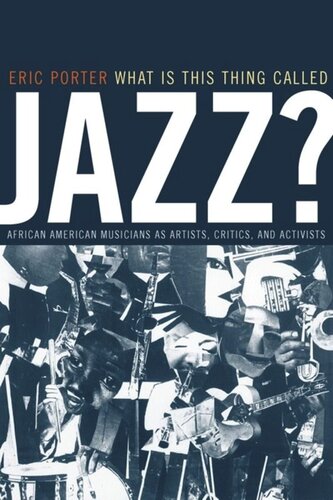

Most ebook files are in PDF format, so you can easily read them using various software such as Foxit Reader or directly on the Google Chrome browser.
Some ebook files are released by publishers in other formats such as .awz, .mobi, .epub, .fb2, etc. You may need to install specific software to read these formats on mobile/PC, such as Calibre.
Please read the tutorial at this link: https://ebookbell.com/faq
We offer FREE conversion to the popular formats you request; however, this may take some time. Therefore, right after payment, please email us, and we will try to provide the service as quickly as possible.
For some exceptional file formats or broken links (if any), please refrain from opening any disputes. Instead, email us first, and we will try to assist within a maximum of 6 hours.
EbookBell Team

4.8
104 reviewsDespite the plethora of writing about jazz, little attention has been paid to what musicians themselves wrote and said about their practice. An implicit division of labor has emerged where, for the most part, black artists invent and play music while white writers provide the commentary. Eric Porter overturns this tendency in his creative intellectual history of African American musicians. He foregrounds the often-ignored ideas of these artists, analyzing them in the context of meanings circulating around jazz, as well as in relationship to broader currents in African American thought.
Porter examines several crucial moments in the history of jazz: the formative years of the 1920s and 1930s; the emergence of bebop; the political and experimental projects of the 1950s, 1960s and 1970s; and the debates surrounding Jazz at Lincoln Center under the direction of Wynton Marsalis. Louis Armstrong, Anthony Braxton, Marion Brown, Duke Ellington, W.C. Handy, Yusef Lateef, Abbey Lincoln, Charles Mingus, Archie Shepp, Wadada Leo Smith, Mary Lou Williams, and Reggie Workman also feature prominently in this book. The wealth of information Porter uncovers shows how these musicians have expressed themselves in print; actively shaped the institutional structures through which the music is created, distributed, and consumed, and how they aligned themselves with other artists and activists, and how they were influenced by forces of class and gender.
What Is This Thing Called Jazz? challenges interpretive orthodoxies by showing how much black jazz musicians have struggled against both the racism of the dominant culture and the prescriptive definitions of racial authenticity propagated by the music's supporters, both white and black.